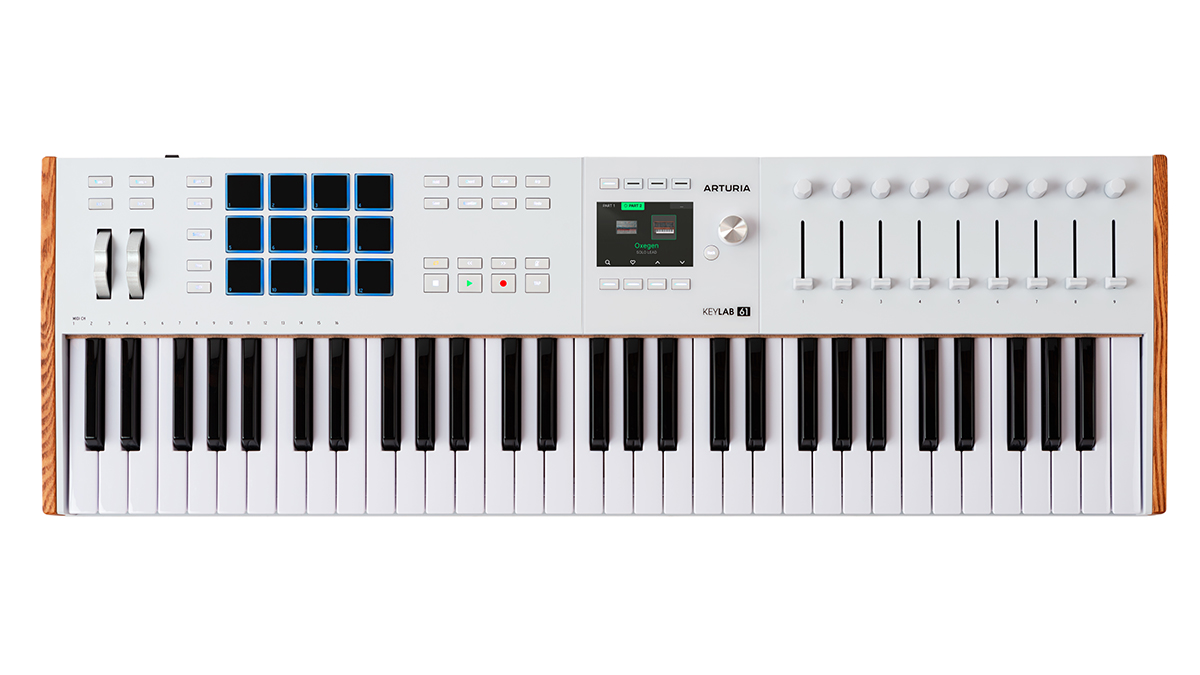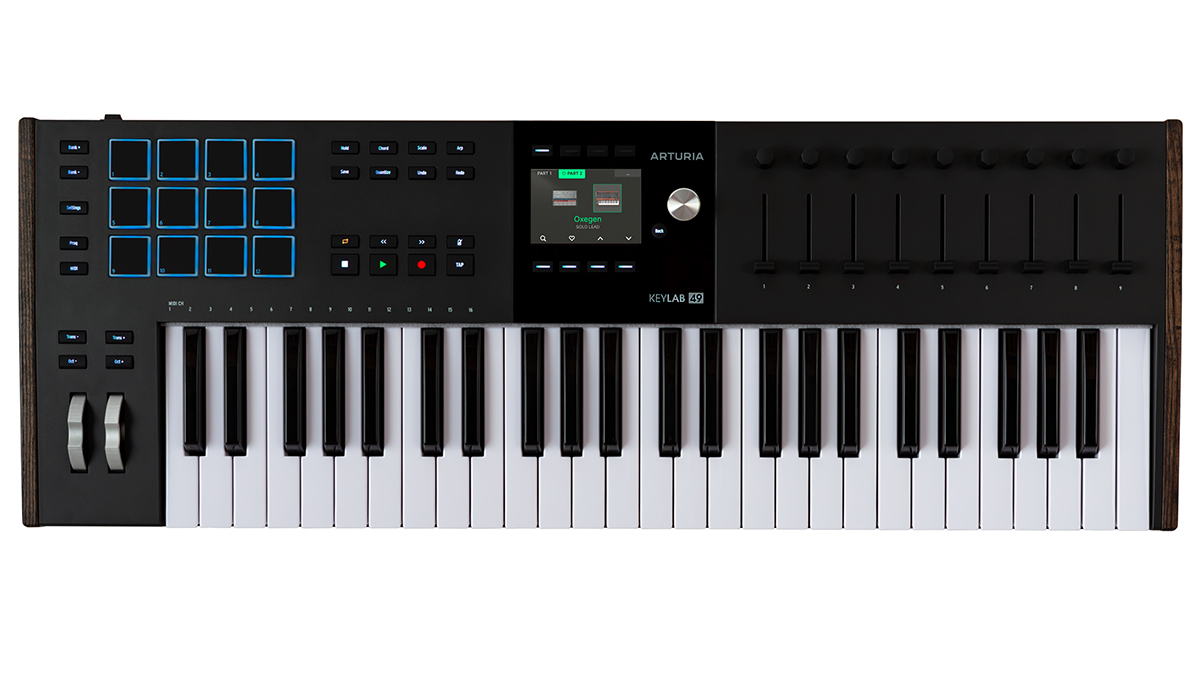Easy to set up, great to play and beautiful to look at: Here’s why Arturia’s KeyLab Mk3 is the premium MIDI keyboard you need in your life
The latest generation of the much-loved controller is stuffed with upgrades
We’ve seen a lot of changes in music technology over the past 25 years, and French company Arturia has been there for pretty much all of them.
From its beginnings as a developer of an all-in-one software studio - Storm, anyone? - to creating a groundbreaking Minimoog emulation with Bob Moog - yep, the man himself - the company has become a specialist in vintage synth and cutting-edge plugins, hardware instruments, audio interfaces and, of course, MIDI controllers.
In fact, Arturia’s MIDI keyboards are as highly regarded as they come, and the latest model in its much-loved KeyLab range, the Mk3, takes the series to yet another level.
The improvements are there for all to see, most obviously in the addition of a large colour display. Replacing the monochrome screen from the Mk2, this provides you with far more insightful visual feedback, giving you a clear view of your currently selected instrument and its key parameters.
In fact, so comprehensive is the integration with Arturia’s Analog Lab and the company’s other instruments that you can play and control them from the KeyLab Mk3 without having to look at your computer screen, replicating the experience of using a hardware synth.

And speaking of playing, with an updated aftertouch keybed design, the KeyLab is now better to jam on than ever. The balance, weighting and spring tension of the keys has been fully reworked, resulting in a more premium feel that allows for greater levels of expression.
The same can be said of the upgraded pads, which have much improved velocity and pressure sensitivity and are perfect for finger drumming, clip launching and any other tasks you want to assign them.
The knobs and faders have been enhanced, too; capacitive touch sensitivity means that tapping on any of them will enable you to see on the screen what it’s controlling, and the current controller value. This is a significant upgrade, and removes the guesswork when you’re performing with synths or making tweaks in your DAW.

Elsewhere, connectivity has been brought up-to-date with the addition of a USB-C port, and developers of various big-name DAWs have contributed scripts so that control of their software is as tight and straightforward as possible.
And, remember: this is just the new stuff. KeyLab Mk3 still offers all the best features of its predecessor, such as creative playing aids (Chord Mode, Scale Mode and Arpeggiator, the last of which has a generative randomiser for quick idea generation) and full MIDI customisation.
There’s a stellar package of bundled software, too: Arturia’s own Analog Lab Pro, Augmented Strings, Rev Plate-140, Mini C V and Piano V plugins, plus Ableton Live Lite and NI’s The Gentleman.
If you’re looking for a high-spec MIDI keyboard, then, the KeyLab Mk3 is a no-brainer. In fact, all you really need to think about is whether you want the 49- or 61-key version and your colour option (black or white).
You can find out more on the Arturia website.

Get the MusicRadar Newsletter
Want all the hottest music and gear news, reviews, deals, features and more, direct to your inbox? Sign up here.

I’m the Deputy Editor of MusicRadar, having worked on the site since its launch in 2007. I previously spent eight years working on our sister magazine, Computer Music. I’ve been playing the piano, gigging in bands and failing to finish tracks at home for more than 30 years, 24 of which I’ve also spent writing about music and the ever-changing technology used to make it.
